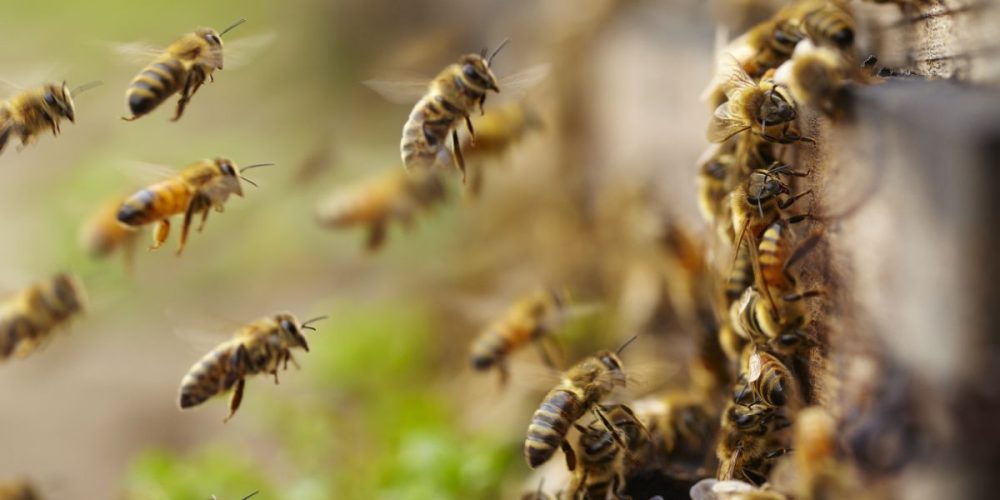An older man and woman in North Richland Hills were attacked by swarms of bees and wasps Tuesday afternoon, leaving the man in critical condition.
North Richland Hills police and firefighters responded to the scene in the 800 block of Cross Drive after a neighbor witnessed the attack and called 911. The neighbor, who asked not to be identified by name, told WFAA that a man in his 70s had been outside doing yard work.
“I saw some bees, a lot of bees. I looked down and saw the man on the floor on his side, and his face had blood all over it. I could tell he was coming in and out of consciousness,” the neighbor said, per WFAA.
“Then his wife came out, and I was already on dispatch. She was trying to pick her husband up. There were so many [bees], it was like a scene from a horror movie,” she continued. “It clumped on his face and all over his body as well. It happened so quickly.”
The bees also attacked the man’s wife, but the dispatcher told the neighbor to go back inside the home.
“A firefighter quickly came and tried to shovel with his hand part of the bees off of his face,” the neighbor recalled, per WFAA. “It was a terrible thing.”
The man and the woman were taken by ambulance to a local hospital. The woman was released later that afternoon, but the man remains hospitalized in critical condition.
“He can answer with his head, yes or no,” said Patricia Byrns, 74, of her partner Lonnie Dorsey, 72, to NBC 5 DFW. “They cleaned him all up this morning. His swelling’s gone down, he’s breathing good.”
Byrns said that Dorsey remains on assisted breathing as medical staff is still picking stingers out from his body.
A local beekeeper, Eric Etheredge, and his team were called to the scene to remove the bees and their hives. When they cut open a tree in the victims’ yard, they found hundreds of bees and wasps and multiple layers of hives embedded in it. As of Wednesday, bees are still swarming the couple’s home.
Etheredge said the bees likely did not have many food sources and were protecting their hive. He noted that it is best to contact a beekeeper to remove a hive safely.


